Millennials have so much pressure dumped on their shoulders. Here's why it's wrong

Your support helps us to tell the story
From reproductive rights to climate change to Big Tech, The Independent is on the ground when the story is developing. Whether it's investigating the financials of Elon Musk's pro-Trump PAC or producing our latest documentary, 'The A Word', which shines a light on the American women fighting for reproductive rights, we know how important it is to parse out the facts from the messaging.
At such a critical moment in US history, we need reporters on the ground. Your donation allows us to keep sending journalists to speak to both sides of the story.
The Independent is trusted by Americans across the entire political spectrum. And unlike many other quality news outlets, we choose not to lock Americans out of our reporting and analysis with paywalls. We believe quality journalism should be available to everyone, paid for by those who can afford it.
Your support makes all the difference.We often think of millennials as the “start-up generation” — apt to jump from job to job in pursuit of the next cool technology or popular idea. In an article published on Mic.com on Monday, Hillary Clinton called millennials “the most open, diverse and entrepreneurial generation in our country's history.”
Millennials are certainly diverse, and they tend to be socially liberal. But a new nationwide poll carried out by EY, a professional services company, and the Economic Innovation Group, a policy and advocacy group, suggests that the generation of Americans who are now between the age of 18 and 34 really are not that entrepreneurial — a finding that is troubling for the future of the U.S. economy.
In fact, a plurality of the 1,200 millennials surveyed — 44 percent of them — said that they think the best way to advance in their career is to stay with one company. Twenty-five percent said moving from job to job at different companies was the best way, and 22 percent said starting your own company was the best plan. Among all racial and gender groups, black women were the only ones who thought starting a company was the best path to success.
“Millennials are on track to be the least entrepreneurial generation on record, and that has huge implications for our economy going forward,” said John Lettieri, co-founder and senior director for policy and strategy at EIG.
In an interview, Lettieri and others from EY and EIG pointed out that, unfortunately, the millennials who chose the one-company career path are probably wrong. It’s widely acknowledged that moving from job to job at different companies tends to be an easier way to move up the corporate ladder today than staying with one company.
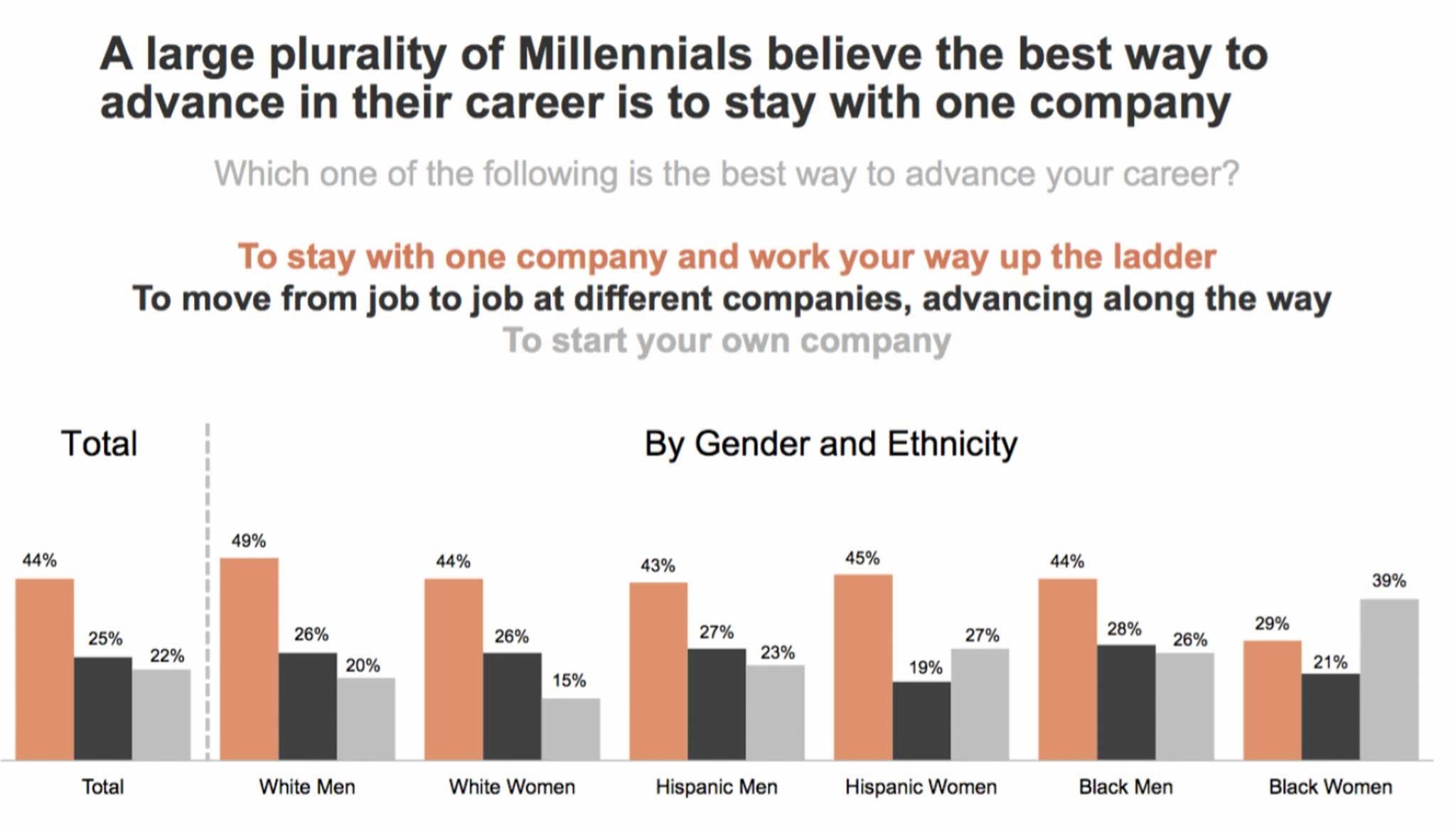
Survey data suggest that millennials might also be unaware of their own lack of entrepreneurship. In the poll, 72 percent of the millennials agreed that entrepreneurship and start-ups are essential to the national economy. They overwhelmingly described working for a start-up as a sign of success. They also described their generation as more entrepreneurial than previous generations — but the data suggest otherwise.
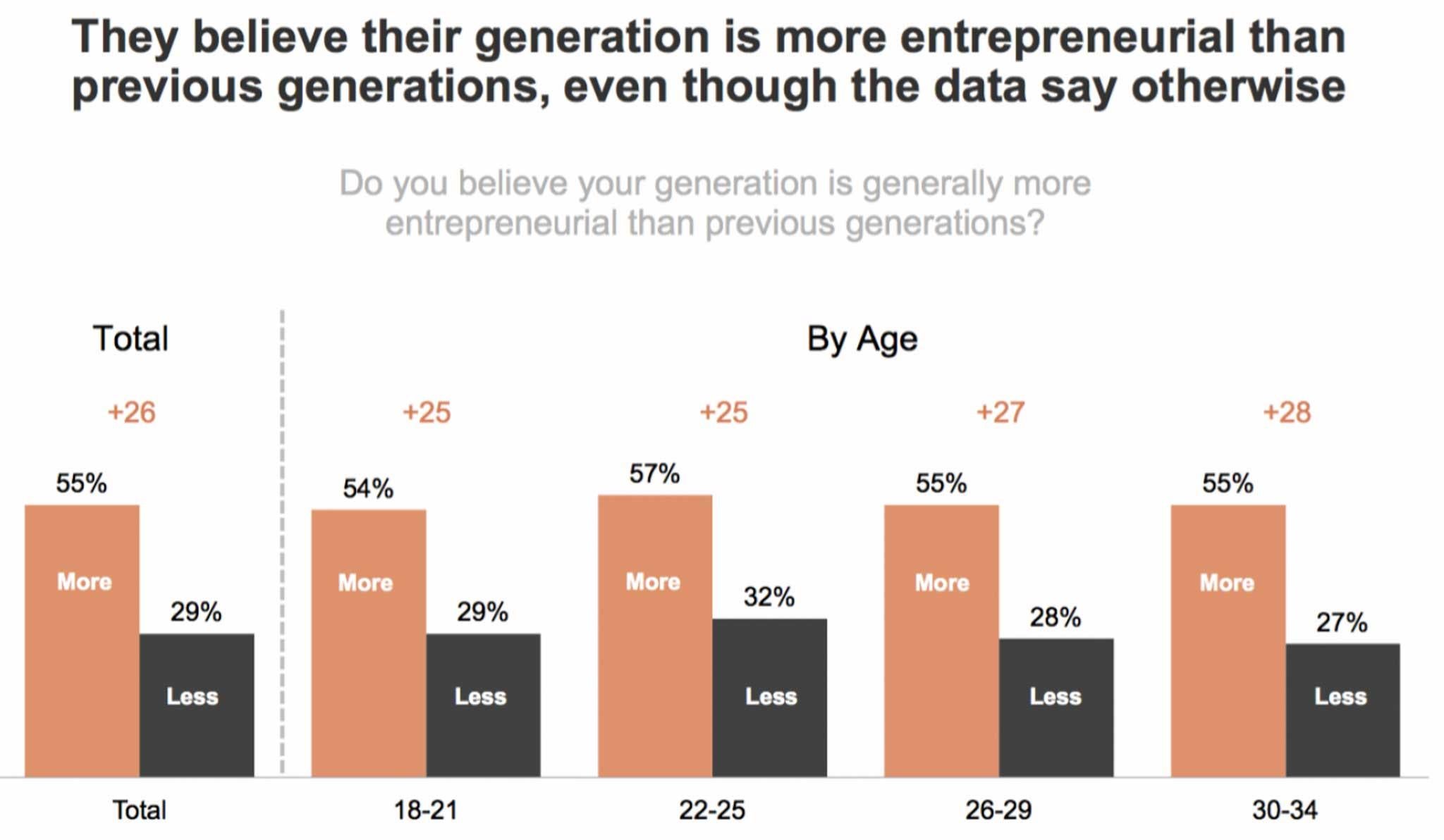
Many millennials describe starting a business as personally out of reach, often for financial reasons. The reasons are no mystery. The generation is clearly struggling with low wages, heavy student debt and a grim economy, all of which have pushed them into deeply risk-averse career paths. Compared with Gen Xers, millennials are more educated, make less money and are more likely to be unemployed.
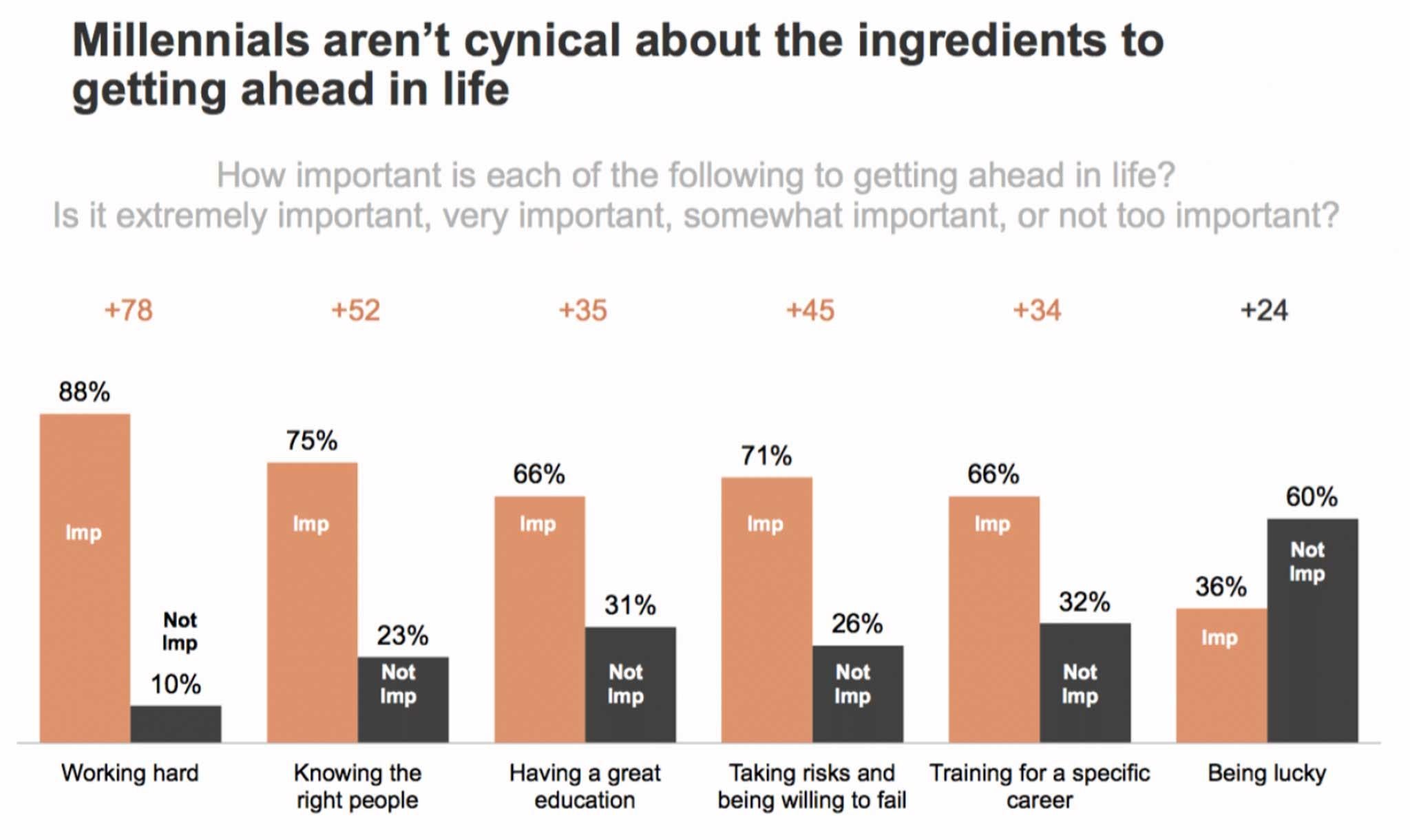
“When you’re pessimistic and distrustful as a generation, you tend to do things that make you poorer as an economy. Choosing those risk-averse paths, because they’re the ones with potentially the least downside, also caps your ability to grow,” Lettieri says.
Cathy Koch, Americas tax policy leader at EY, says the story has a silver lining: If given the kind of economic climate to start a business, millennials appear to have the attitude, the education and the skills to succeed. “This generation is very hard-working. They’re willing to move to get a better job,” she says. “They have a lot of the qualities that will enable them to do what it takes when the opportunity presents itself.”
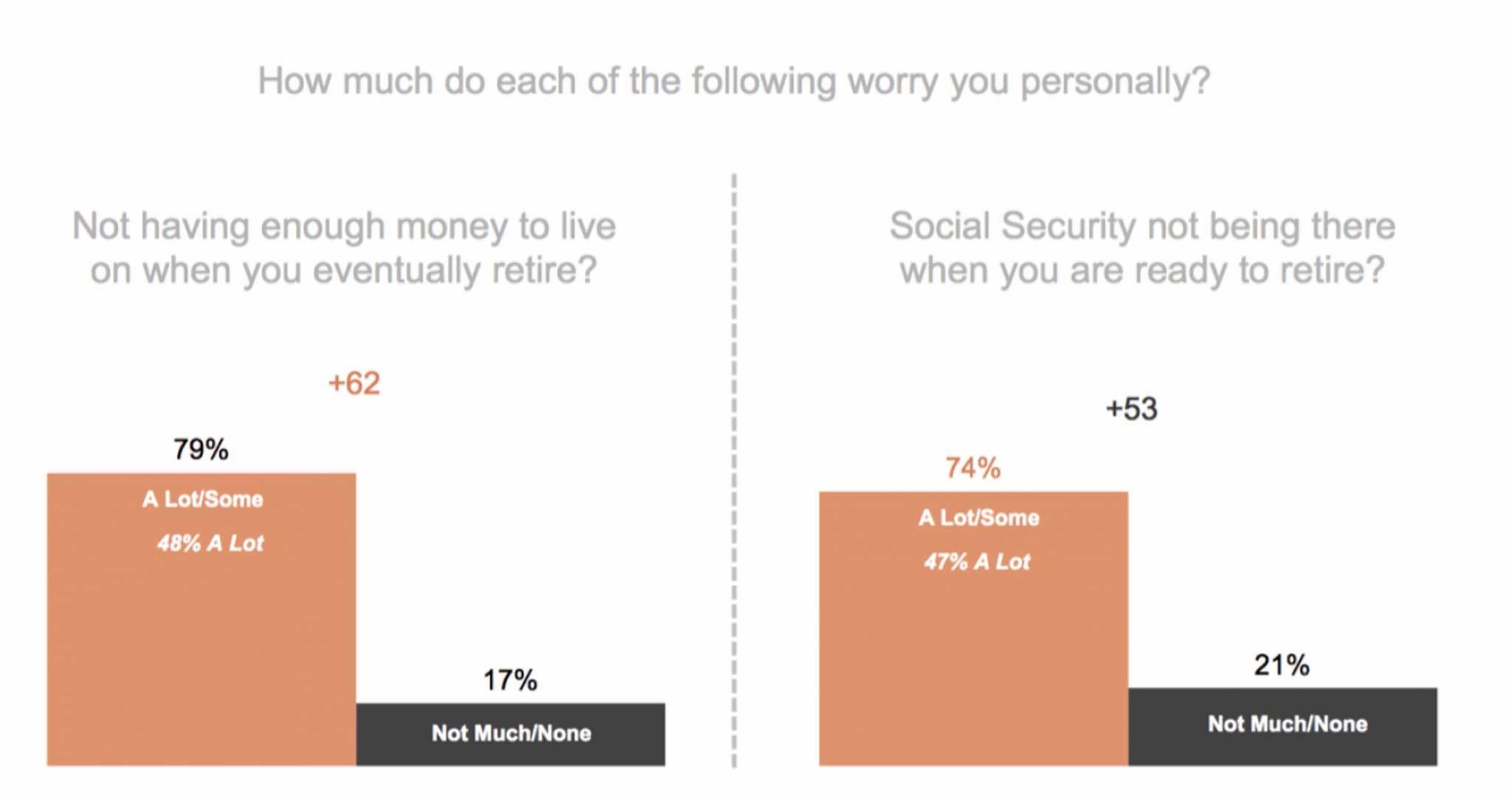
Overall, the picture the survey gives of millennials is much more traditional than popular wisdom often suggests. Millennials appear to be heavily patriotic: 84 percent say they are proud to be an American, with Hispanic males most likely to agree with that statement. While they are distrustful of institutions like banks, corporate America, the federal government and the news media, millennials put great confidence in the military, the survey shows. They are also already deeply worried about retirement. More than 70 percent said they worried some or a lot about not having enough money to live on when they retired and about whether Social Security will exist in their older years.
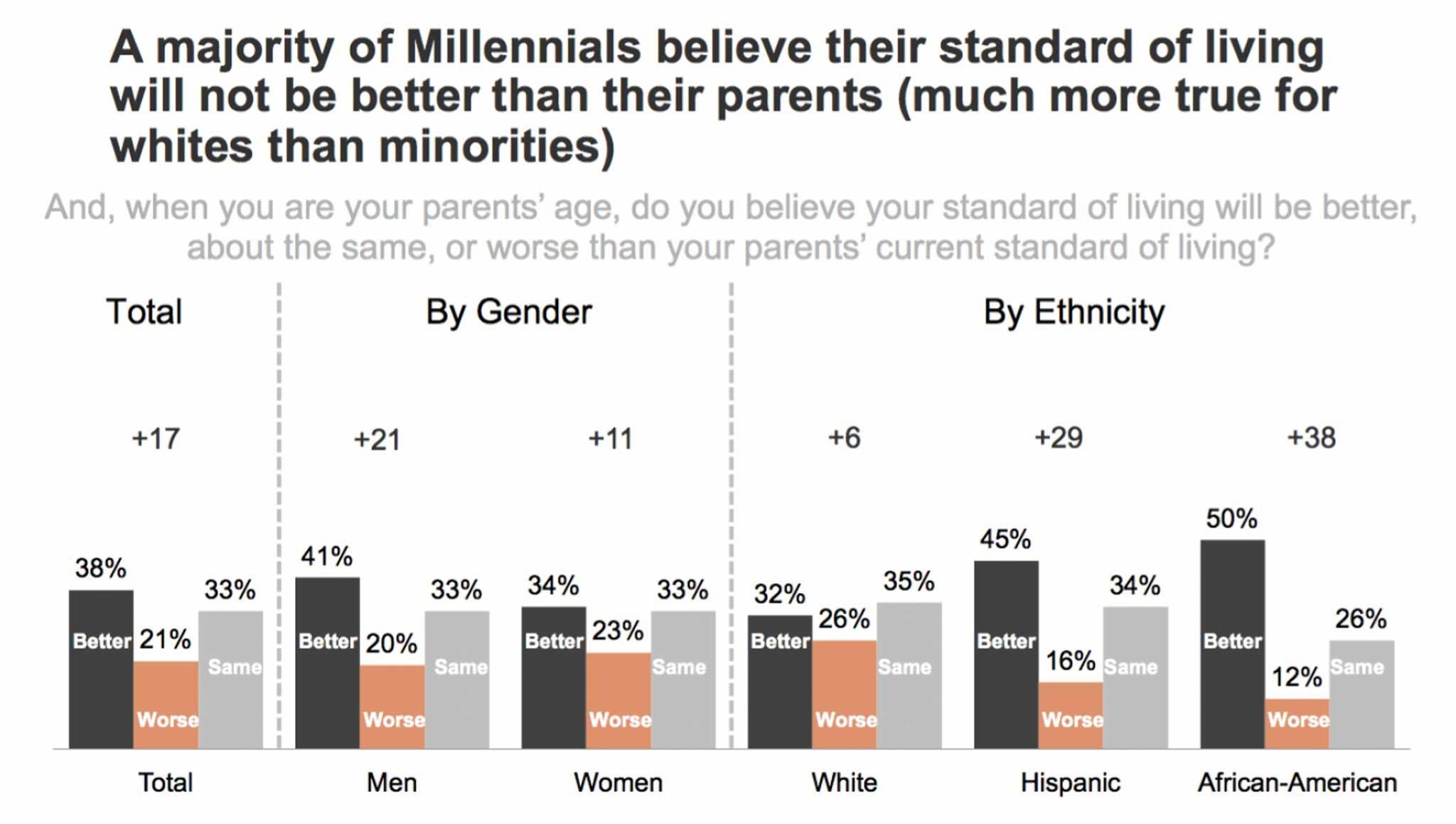
Sadly, most millennials now think their standard of living will not be better than their parents'. Whites are most likely to agree with that statement, with about half of African Americans and 45 percent of Hispanics saying their living standard will be better.
Steve Glickman, co-founder and executive director of EIG, says this economic dissatisfaction has meant that the millennial vote is still essentially up for grabs in the election.
“A big reason they are uncomfortable with politics is they are uncomfortable with the personal state of their economics.” Millennials are trying to do everything society tells them to get ahead, he says — get educated, work hard, move if they need to move. “But they’re finding those decisions more and more difficult. That, coupled with the increased debt, means they have less and less opportunity.”
Copywright: Washington Post
Join our commenting forum
Join thought-provoking conversations, follow other Independent readers and see their replies
Comments